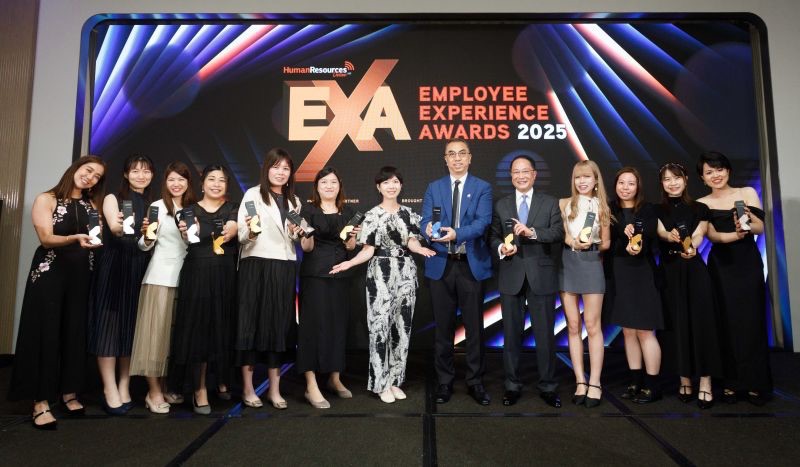Hong Kong HR trends & workplace insights 9/8-12/8
This week’s HR insights bring you a closer look at how workplace cultures are evolving across industries and regions. From the shifting priorities of Silicon Valley tech giants to the enduring people-first values of Hong Kong’s homegrown brands, we explore the forces shaping how organisations attract, retain, and support talent. We also examine the property management sector’s response to extreme weather, the business landscape behind record-high company registrations, and how Generation Z’s focus on emotional alignment is influencing both personal and workplace relationships.
1. New York Times: The Golden Era for Employees at Silicon Valley Tech Giants Has Ended

One-minute summary
In a compelling New York Times exposé published on August 5, 2025, a former Google engineer reflects on how Silicon Valley’s workplace culture has radically shifted. Once lavish perks—steak dinners, free fruit juices, gym classes, Christmas bonuses, stock options, and generous retirement matches—have all but disappeared. Transparency has dwindled, promotion budgets have dried up, and performance evaluations have grown more punitive. The article traces this transformation through the experience of a long-time engineer who left her “dream job” after an 18-year tenure, marking an end to what many saw as Silicon Valley’s golden age.
3 main takeaways
• Lavish perks have disappeared. In 2007, a Google “Noogler” enjoyed gourmet dining, fitness classes, and an open culture that encouraged collaboration. Today, these perks have been cut, replaced by cost-conscious measures that prioritize efficiency over employee indulgence. This signals a broader trend in the tech sector toward leaner, less perk-focused environments.
• Transparency is no longer the norm. The open-door policies and access to internal data that once defined Silicon Valley culture have been replaced with tighter controls on information. Decisions that affect employees are often explained in vague terms, eroding the trust and sense of inclusion that previously set these companies apart.
• Workplace pressure is intensifying. With fewer promotions available and stricter performance reviews, the focus has shifted heavily toward measurable output. Even long-serving employees are choosing to leave, as career stability in tech now feels increasingly uncertain and transactional.
Implications for employees
• Adaptability is now essential. Employees must adjust to a results-driven workplace with reduced benefits and less transparency. To thrive, they will need to be proactive about skill development, networking, and positioning themselves for career mobility both inside and outside their current company.
• Cultural fit matters more than prestige. Choosing an employer should involve weighing transparency, work-life balance, and engagement practices, rather than relying solely on brand reputation. In an era of shrinking perks, finding a workplace that aligns with personal values can boost job satisfaction.
• Prepare for shorter tenures. The era of decades-long careers at a single tech company is fading. Employees should expect to move more frequently, making it crucial to maintain a strong professional profile and transferable skill set to navigate future changes confidently.
Implications for HR
• Redefine the employee value proposition. Without lavish perks, HR must focus on building meaningful engagement through career growth opportunities, mentorship, and clear communication about company direction.
• Strengthen trust through transparency. Even when delivering tough news, openly sharing the rationale behind decisions can help maintain employee confidence and reduce attrition. Transparent leadership becomes a differentiator in a competitive talent market.
• Support performance without burnout. As performance expectations rise, HR should ensure appraisal systems are fair, workload is balanced, and recognition is consistent. This helps sustain productivity while avoiding disengagement or mass turnover.
Source: New York Times
2. Behind the Win: Tam Jai International’s “ACE IT” Values Build a People-First Corporate Culture

One-minute summary
Tam Jai International, the Hong Kong-based fast-casual dining group, has won recognition for its “ACE IT” corporate values, which stand for Agility, Collaboration, Excellence, Integrity, and Teamwork. This framework has helped the company maintain a people-first culture even as it rapidly expands across markets. Management credits this success to embedding the values into hiring, training, and performance management, ensuring employees understand how daily actions connect to company purpose. By fostering inclusivity, rewarding contributions, and investing in development, Tam Jai has shown that strong values can tangibly shape both employee satisfaction and business performance.
3 main takeaways
• Values are fully embedded in operations. Tam Jai’s ACE IT values are not just slogans—they guide decision-making across all levels of the business. This ensures alignment between corporate strategy and employee actions, allowing the company to scale quickly while preserving its core culture.
• Employee growth is a strategic priority. Investment in training, leadership pipelines, and skill-building creates long-term engagement. These initiatives help reduce turnover, improve operational performance, and prepare the workforce for evolving customer demands.
• Recognition and inclusion drive loyalty. Celebrating achievements, maintaining open communication, and fostering a welcoming environment strengthen employee commitment. This focus on morale directly benefits customer service quality and brand reputation.
Implications for employees
• Clear expectations support personal success. Employees benefit from knowing exactly how their work ties to the company’s mission, which can boost motivation and job satisfaction. With structured career pathways and accessible training, staff can confidently develop within the organization.
• Opportunities for advancement are tangible. Continuous investment in learning ensures that employees have the skills needed for future roles. This proactive approach can help staff plan for long-term careers within the company rather than seeking external opportunities.
• Recognition reinforces a sense of belonging. Publicly acknowledging contributions and celebrating team achievements create an environment where employees feel valued, leading to stronger engagement and loyalty.
Implications for HR
• Operationalize values in every HR process. Embedding values into recruitment, onboarding, training, and appraisal systems ensures consistent cultural alignment across the workforce. This approach also makes scaling smoother.
• Use development as a retention tool. By offering structured training and leadership opportunities, HR can reduce turnover and build a talent pipeline capable of sustaining growth.
• Maintain an inclusive, communicative culture. HR should ensure employees feel heard and recognized through regular feedback and transparent communication. These practices strengthen both morale and the employer brand.
Source: Human Resources Online
3. Property Management Industry Urges Subsidies for Frontline Workers During Extreme Weather, and Calls for Flexible Employer Arrangements Without Penalizing Absences

One-minute summary
The Hong Kong Association of Property Management Companies has urged employers to show greater empathy toward frontline staff during extreme weather such as typhoons and black rainstorms. The group recommends avoiding wage deductions when employees cannot commute safely, and offering transport subsidies to those who do work on-site. While the Labour Department already issues guidelines on adverse weather work arrangements, compliance remains inconsistent. Advocates stress that these measures not only protect worker safety but also demonstrate a company’s commitment to fairness and care in challenging conditions.
3 main takeaways
• Fair treatment during extreme weather is essential. Employers are being called on to avoid penalizing staff who cannot attend work due to severe weather disruptions. This stance emphasizes trust, empathy, and recognition that safety should always outweigh attendance requirements.
• Compensation for on-duty staff builds goodwill. Providing transport allowances or hazard pay to employees who work during adverse weather signals appreciation for their dedication. Such gestures can strengthen morale and reinforce the company’s reputation as a responsible employer.
• Guidelines exist but aren’t always enforced. The Labour Department’s “Work Arrangements under Adverse Weather and Extreme Conditions” outlines flexible measures for employers. However, inconsistent adoption across the industry means many frontline workers remain vulnerable to financial and safety risks.
Implications for employees
• Safety and well-being are the priority. Employees should feel empowered to prioritize personal safety during severe weather without fear of wage loss or disciplinary action. Clear policies can alleviate stress and ensure workers are not forced into unsafe commutes.
• Financial support matters during disruptions. Transport subsidies or similar allowances can offset the costs and challenges of working during extreme conditions. These measures acknowledge the personal sacrifices employees make to keep operations running.
• Awareness of rights is crucial. Employees should familiarize themselves with the Labour Department’s guidelines to better understand the protections and arrangements they are entitled to during adverse weather events.
Implications for HR
• Align policies with official guidelines. HR should ensure the company’s adverse weather protocols match or exceed the Labour Department’s recommendations, and that they are clearly communicated to all staff.
• Proactively plan for extreme conditions. Developing contingency plans—such as remote work options, staggered shifts, or temporary closures—can help maintain operations while safeguarding employees.
• Reinforce trust and loyalty through action. When employees see that their well-being is prioritized over attendance, it fosters stronger engagement and long-term commitment to the organization.
Source: TVB
4. Official Data Show Record-High Company Registration Figures in Hong Kong

One-minute summary
Official data from the Companies Registry reveal that by the end of June 2025, approximately 1.495 million local companies were registered in Hong Kong—an all-time high. In the first half of 2025 alone, 84,293 new local firms were incorporated. Equally notable, 15,509 non-Hong Kong companies established a business presence in the city during the same period, also setting a new record. These soaring numbers reflect both a resilient and business-friendly environment amid ongoing global uncertainties.
3 main takeaways
• New company registrations are surging. With over 84,000 new local companies in just the first half of 2025, Hong Kong demonstrates strong entrepreneurial momentum. This pace signals robust confidence in the city’s economic infrastructure.
• Total registrations hit unprecedented levels. The cumulative total of 1.495 million local firms underscores Hong Kong’s position as a preferred business hub in Asia. This milestone highlights the city’s appeal across sectors and nationalities.
• Foreign and non-local enterprises are also booming. With more than 15,500 non-Hong Kong companies now registered—another record—foreign investment and corporate relocation to Hong Kong remain strong despite geopolitical headwinds.
Implications for employees
• More diverse employment opportunities are emerging. The surge in both local and foreign companies creates avenues for new roles across industries. Employees may benefit from being able to explore positions in emerging sectors or multinational setups.
• Growing startup activity may attract innovation-minded talent. A flood of new firms presents chances for professionals who seek dynamic, growth-oriented workplaces with potentially entrepreneurial roles.
• Job seekers should stay agile. In such a booming corporate landscape, being proactive in networking and upskilling can unlock opportunities with freshly registered companies that may offer competitive roles.
Implications for HR
• Talent competition is intensifying. With rising numbers of companies, HR teams must sharpen their employer branding and retention strategies to stand out among a growing pool of competitors seeking skilled employees.
• Workforce planning needs strategic foresight. The influx of new firms may create both opportunities and pressure points in labour markets. HR should anticipate skills gaps and ramp up training and recruitment pipelines accordingly.
• Adaptability will be key. HR professionals must be agile in policies, benefits, and onboarding practices to align with the needs of a rapidly diversifying employer ecosystem and changing workforce expectations.
Source: Hong Kong Government
5. Generation Z Redefines Relationships by Prioritising Emotional Alignment Over Generational Peers

One-minute summary
Recent lifestyle research suggests that Generation Z is placing emotional compatibility above traditional relationship factors, such as age similarity or social background. Rather than prioritising shared generational experiences, many Gen Z individuals seek partners who offer mutual emotional understanding, communication, and personal growth. This shift reflects broader cultural changes where mental health awareness, authenticity, and emotional safety are more valued than external markers of compatibility. As digital platforms and hybrid lifestyles expand the dating pool, emotional alignment is emerging as the leading factor in relationship satisfaction for this generation.
3 main takeaways
• Emotional connection is the new priority. For many Gen Z individuals, relationships are increasingly built on shared values, empathy, and open communication. Age proximity or similar life stages matter less compared to a partner’s ability to provide emotional support and understanding.
• Mental health awareness shapes relationship choices. Greater recognition of emotional well-being has led Gen Z to place higher importance on psychological safety and respectful boundaries, often rejecting connections that feel emotionally draining, even if other compatibility factors are present.
• Technology expands compatibility horizons. Social media and dating platforms allow Gen Z to connect with people of varied backgrounds and ages, enabling them to focus more on emotional resonance than on demographic similarities when forming bonds.
Implications for employees
• Interpersonal skills are becoming more valued. As emotional alignment becomes a priority in personal lives, employees may seek workplaces that also encourage empathy, collaboration, and mutual respect in team relationships.
• Mental health expectations will extend to the workplace. Just as Gen Z prioritises emotional well-being in relationships, they may expect employers to foster psychologically safe environments, offer mental health resources, and actively address workplace stressors.
• Workplace culture impacts retention. If employees feel emotionally disconnected or unsupported at work, they may be more likely to leave—even if salary and benefits are competitive—mirroring how they approach personal relationships.
Implications for HR
• Embed emotional intelligence in leadership training. Managers who can empathise, communicate openly, and resolve conflicts constructively will be better equipped to engage and retain Gen Z talent.
• Foster a psychologically safe culture. HR should promote initiatives that normalise mental health discussions, encourage inclusivity, and create channels for honest feedback without fear of reprisal.
• Revisit recruitment messaging. Employer branding that highlights empathy, authenticity, and respect may resonate more strongly with Gen Z candidates than traditional perks or status-driven incentives.
Source: Dimsum Daily
Mark your calendars: 22/8 HRO’s exclusive HR Mixer

